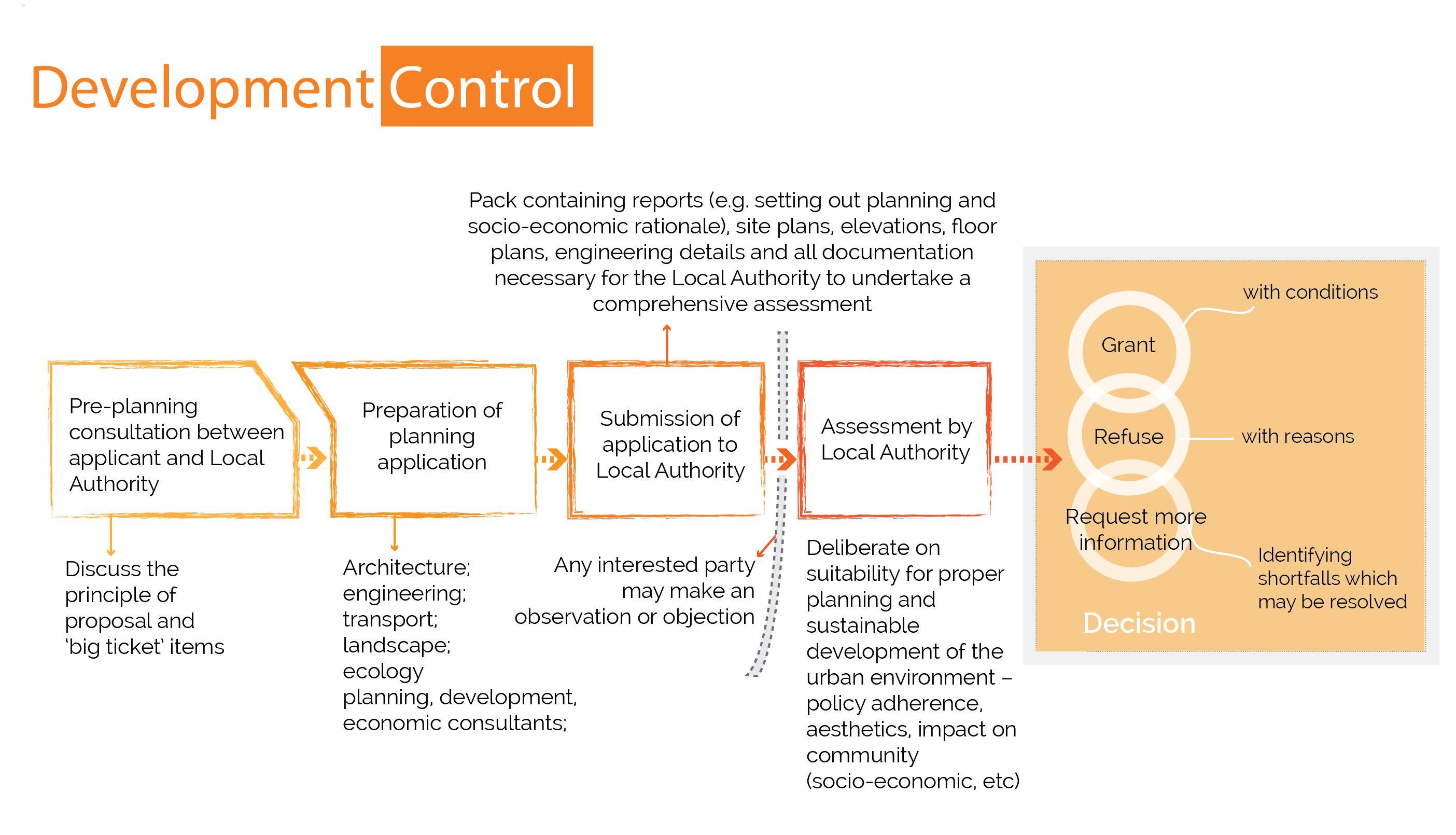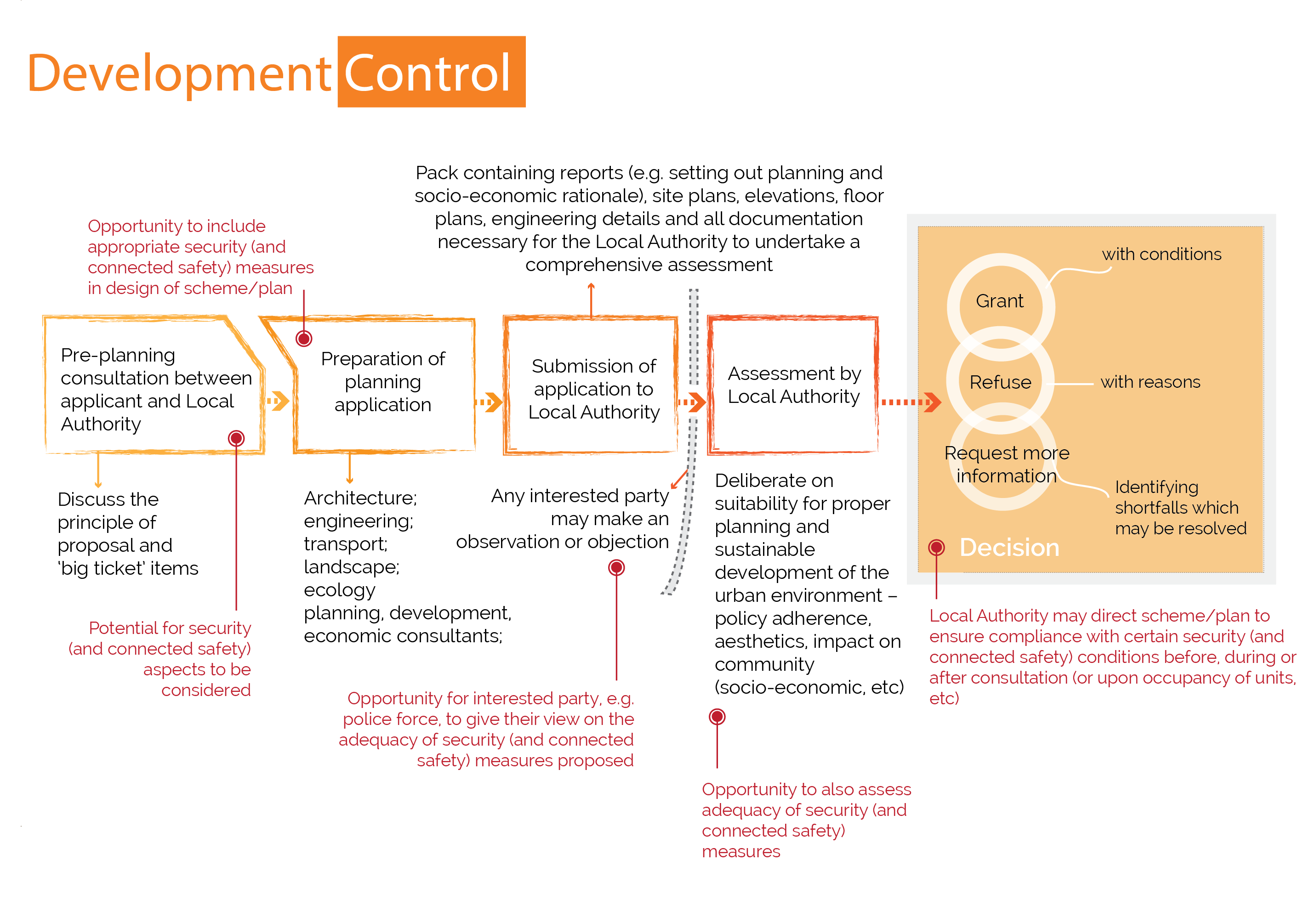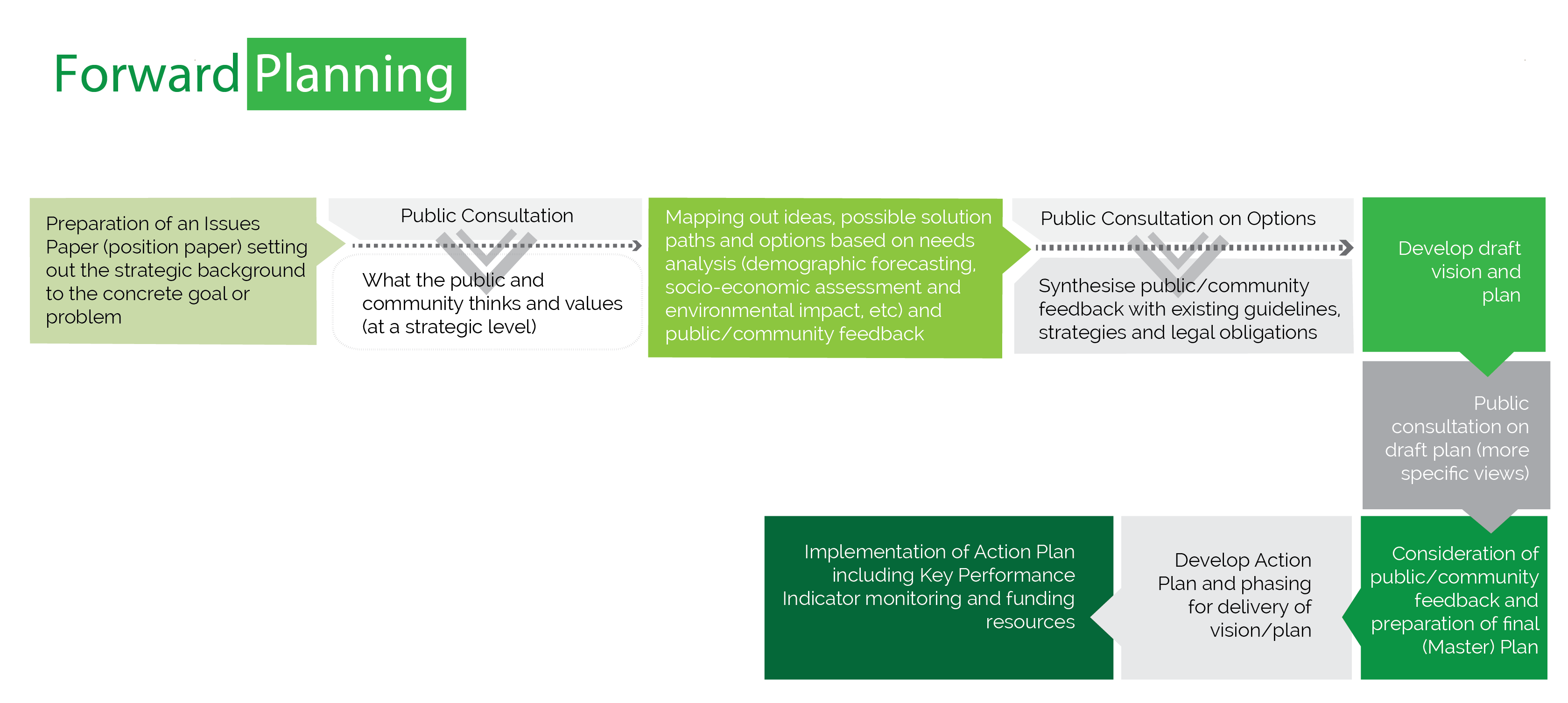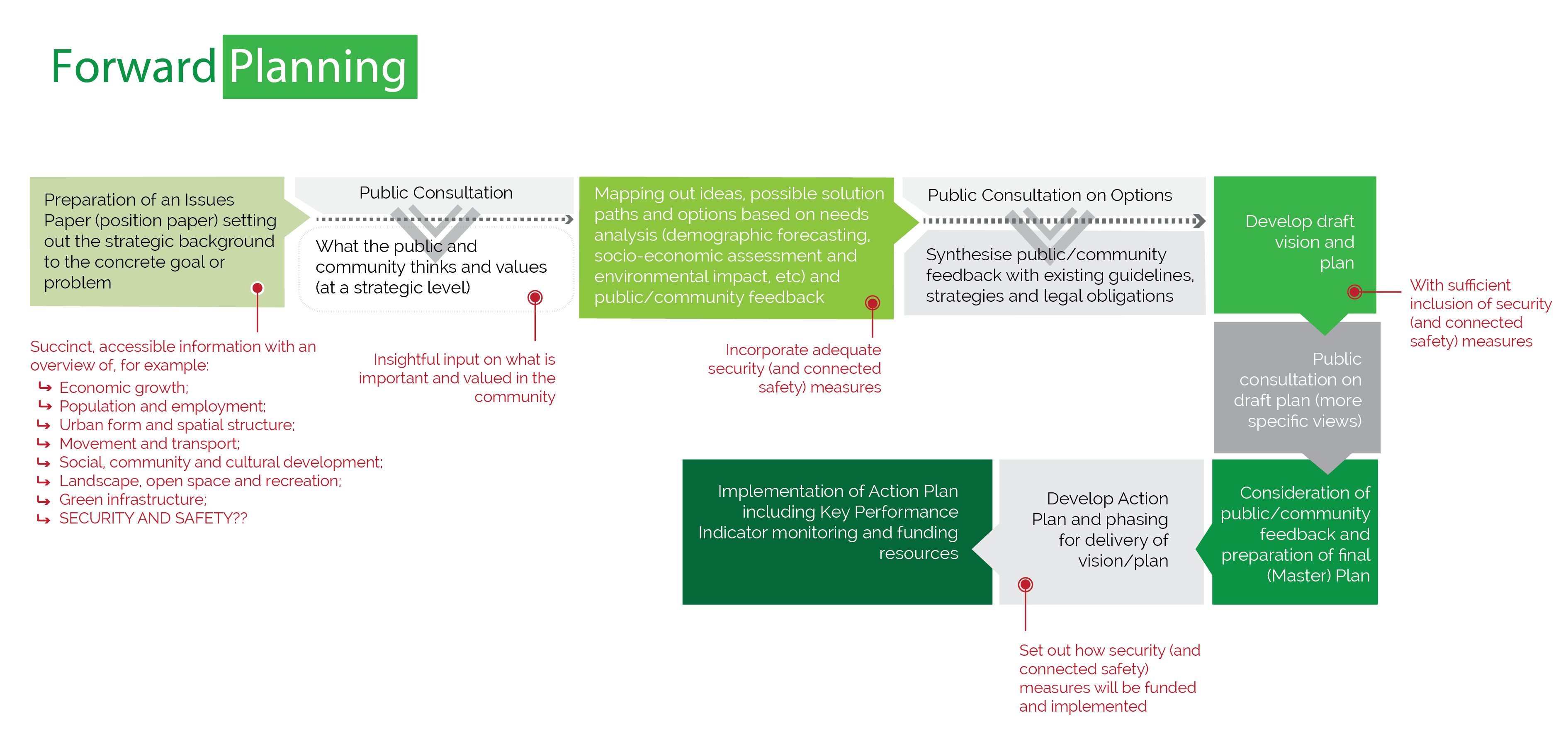Difference between revisions of "Urban Planning Process"
m (Text replace - " ={{PAGENAME}}=" to "") |
m (Text replace - "= MAP =" to "") |
||
| Line 113: | Line 113: | ||
{{references}} |
{{references}} |
||
= MAP = |
|||
<websiteFrame> |
<websiteFrame> |
||
website=http://securipedia.eu/cool/index.php?wiki=securipedia.eu&concept=Ethics_aspects |
website=http://securipedia.eu/cool/index.php?wiki=securipedia.eu&concept=Ethics_aspects |
||
Revision as of 16:33, 30 January 2013
The urban planning process consists of a dual approach of development control and forward planning.
Development Control
Development control, or development management, is primarily concerned with the control of the use of land and property, and is the mechanism through which the objectives and policies of a city development plan is complied with. Development control refers to the planning application process and statutory provisions, and covers issues such as exempted development (i.e. development which does not require development), enforcement (with regard to unauthorised development) and other related matters.
Forward Planning
Forward planning is the term used to describe the plan-making process, including a Local Area Plan for a designated regeneration quarter or for part of a city. It concerns planning for the future and designing strategies to help cities and urban areas to develop in a coordinated and coherent manner, with the necessary capacity to meet the challenges of the future. Forward planning involves identifying the strengths, constraints, opportunities and threats of an area, formulating a strategic vision, objectives and policies, and implementing a plan that is flexible and dynamic, and addresses the social, economic and technical systems in infrastructure needed for sustainable development.
Footnotes and references
<websiteFrame>
website=http://securipedia.eu/cool/index.php?wiki=securipedia.eu&concept=Ethics_aspects
height=1023
width=100%
border=0
scroll=auto
align=middle
</websiteFrame>
<headertabs/>



